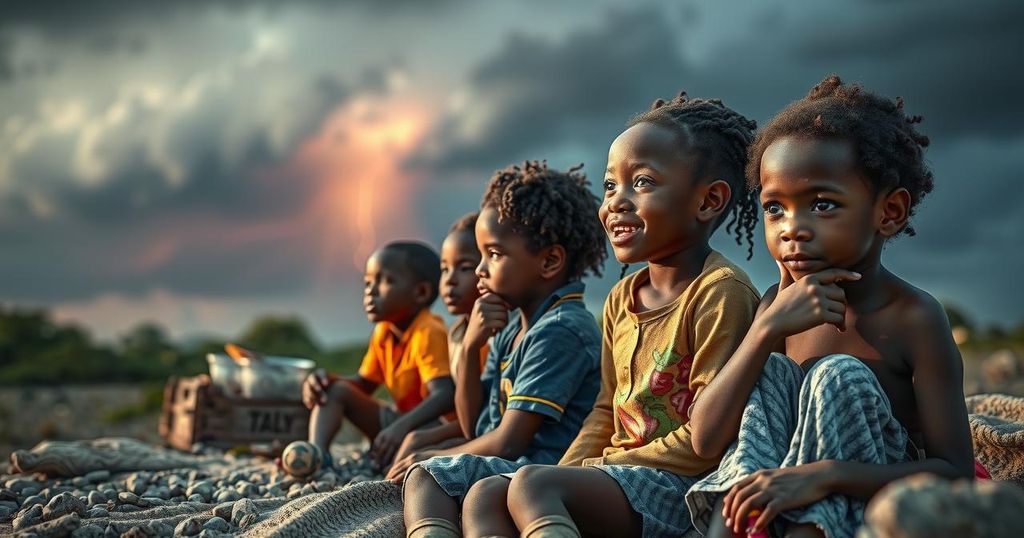Children in Northern Madagascar Prepare for Cyclone Dikeledi Amid Growing Storm Threat

Over 22,500 children in Northern Madagascar prepare for Tropical Cyclone Dikeledi, facing risks of severe weather, flooding, and displacement. The storm follows previous incidents, emphasizing the growing frequency of extreme weather events due to climate change. Save the Children calls for immediate aid and increased funding from wealthier nations to support vulnerable communities.
In anticipation of the approaching Tropical Cyclone Dikeledi, over 22,500 children in Northern Madagascar are facing significant danger as authorities warn of potential gusty winds, extreme rainfall, and severe flooding. The meteorological service has reported that the region has already been hit by heavy rainfall, and further rain, along with strong winds and storm surges, is anticipated from January 11th onward. Save the Children has expressed concern after past storms caused fatalities and property damage in similar weather events.
Historically, Madagascar recently endured the impacts of Tropical Storm Chido, which resulted in loss of life and injuries in nearby Mayotte. As this next storm approaches, Save the Children emphasizes that such extreme weather occurrences are becoming increasingly prevalent due to the climate crisis. The organization calls for urgent assistance from wealthier nations, highlighting the pressing need for funding to help lower-income countries mitigate climate-related disasters.
Tatiana Dasys, the Save the Children Country Representative for Madagascar, stated her grave concerns regarding the imminent cyclone. “We are extremely concerned that more than 22,500 children living in areas expected to be hit by the cyclone are at risk of being displaced, losing their homes, school and possibly being injured or killed. The expected heavy rainfall could lead to catastrophic flooding in vulnerable regions, significantly exacerbating the crisis. Save the Children is on standby to conduct impact assessments and assist affected families.
To prepare for the impending cyclone, Save the Children has distributed essential supplies in the region and has bolstered community preparedness, particularly in schools. They emphasize the urgent need for immediate humanitarian aid and rescue efforts to protect those at risk from the cyclone’s lethal effects. Continued efforts from higher-income nations are crucial to combating the adverse effects of climate change on countries like Madagascar, which are disproportionately affected.
Save the Children has been active in Madagascar since 2016, providing various forms of support including cash-based assistance and child protection services. The organization has successfully reached thousands of children facing crises, highlighting the necessity of sustained intervention in the face of returning humanitarian challenges associated with climate impacts.
Madagascar, an island nation, is frequently vulnerable to tropical storms and cyclones due to its geographical location. The increasing frequency and intensity of storms are attributed to climate change, leading to dire consequences for its population, especially children. Humanitarian organizations like Save the Children play a crucial role in responding to disasters, offering vital assistance and support to affected families, while advocating for more substantial climate funding from developed nations to assist poorer countries battling severe weather events.
In conclusion, the imminent threat posed by Tropical Cyclone Dikeledi to over 22,500 children in Northern Madagascar underscores the urgent need for proactive disaster relief and preparedness. Save the Children’s efforts illustrate the significance of immediate humanitarian responses, as well as the essential support required from wealthier nations to help mitigate the impacts of climate change. The increasing prevalence of such storms emphasizes the necessity for sustained international cooperation and funding to protect vulnerable populations from future climate-related disasters.
Original Source: www.africa.com






